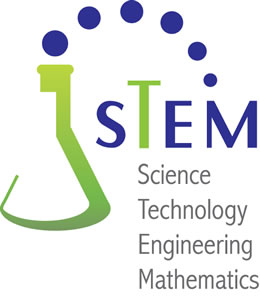CGKY News Hub
Your go-to source for the latest insights and trends.
STEMming the Tide: Why Tomorrow's Innovators Start Today
Discover how today's innovators are shaping tomorrow's world! Uncover tips and insights to ignite your STEM journey now!
The Importance of Early STEM Education: Shaping Future Innovators
The Importance of Early STEM Education cannot be overstated, as it lays the foundation for young learners to become the innovators of tomorrow. By introducing children to STEM (Science, Technology, Engineering, and Mathematics) concepts at an early age, we nurture their curiosity and problem-solving skills. Engaging in hands-on activities such as coding, robotics, or simple science experiments not only enhances their understanding of complex subjects, but also encourages critical thinking and collaboration. Studies have shown that children who participate in STEM education early on are more likely to pursue related fields in higher education and ultimately contribute to advancements in technology and innovation.
Moreover, early STEM education promotes inclusivity and diversity in the tech and science industries. By actively engaging girls and underrepresented minorities in STEM programs, we can work towards closing the gender and racial gaps that currently exist. Organizations like ASEE emphasize that when children see diverse role models and receive encouragement in STEM fields, their confidence increases, paving the way for a richer, more innovative workforce. Investing in early STEM education creates a pipeline of talent that drives progress and helps solve global challenges.

How STEM Skills Drive Innovation: A Look into Tomorrow's Leaders
In today's rapidly evolving technological landscape, STEM skills—which encompass Science, Technology, Engineering, and Mathematics—play a pivotal role in driving innovation. As the demand for innovative solutions grows, industries are increasingly relying on professionals equipped with these skills. According to a report from the Bureau of Labor Statistics, jobs requiring STEM knowledge are projected to grow significantly in the coming years, underscoring the importance of cultivating these abilities among the next generation. By fostering critical thinking, creativity, and problem-solving capabilities, education in STEM fields empowers students to tackle complex challenges and contribute to transformative advancements.
Moreover, future leaders are not just consumers of technology; they are innovators who will shape its course. A study published by the National Science Foundation highlights that STEM-oriented innovation leads to significant economic growth and societal benefits. As businesses seek individuals with strong STEM backgrounds to spearhead research and development initiatives, it becomes increasingly important for educational institutions to prioritize STEM curricula. Embracing this focus not only prepares students for varied careers but also ensures a cadre of leaders capable of driving sustainable innovation in an ever-changing world.
What Are the Essential STEM Skills for the Next Generation?
The essential STEM skills for the next generation are vital for fostering innovation and addressing complex challenges in our rapidly evolving world. Students must develop a robust foundation in science, technology, engineering, and mathematics to prepare for future careers in diverse fields. These skills include critical thinking, creativity, and problem-solving abilities, which are fundamental for tackling real-world issues and driving technological advancements. Emphasizing hands-on learning through projects and collaborative activities can further enhance these competencies and encourage a deeper understanding of STEM concepts.
Moreover, as the demand for STEM professionals continues to rise, it becomes imperative to cultivate essential skills such as data analysis, programming, and digital literacy. With the advent of artificial intelligence and data-driven decision making, proficiency in these areas will be increasingly valuable. Educational institutions and parents alike must prioritize STEM education to ensure that children are equipped with the tools necessary for success in a technology-centric future. By fostering a growth mindset and encouraging curiosity, we can inspire the next generation to excel in STEM disciplines.